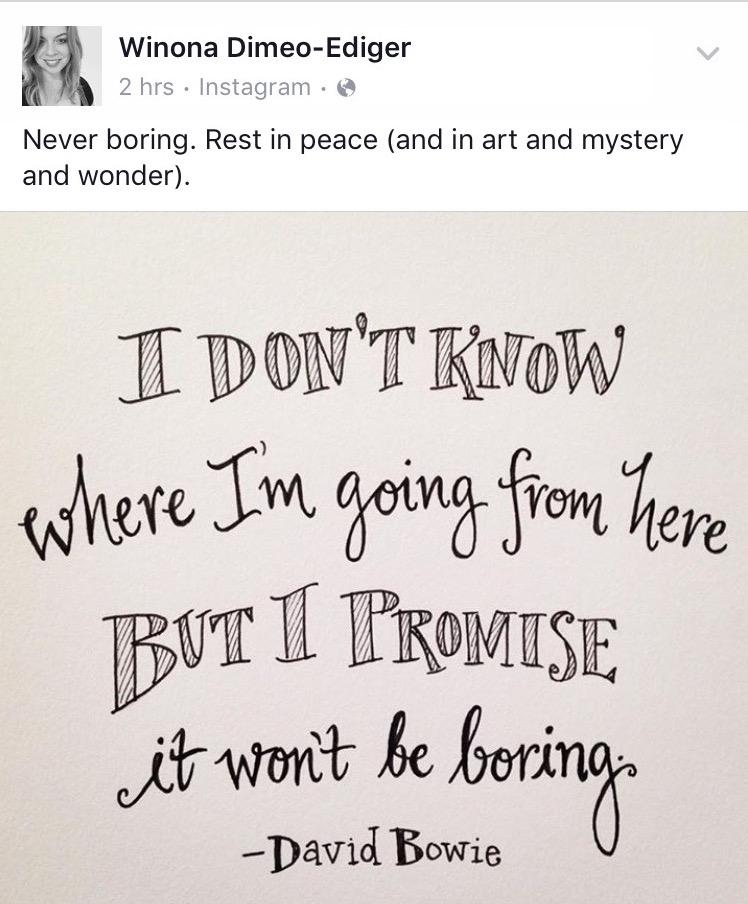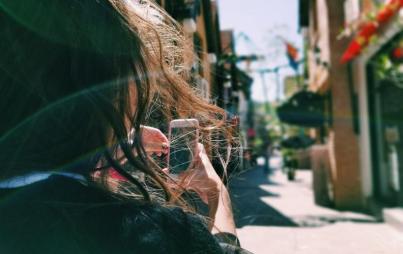
"Grief can’t be curated."
For a few hours, irony disappears from social media, replaced by sincerity and sadness. For a few hours, everybody’s real.
There’s something that happens on social media every time a celebrity dies. After the initial shock and questions of “is it a hoax?” have abated, people start telling stories. They write status updates describing what a certain movie or album meant to them. They trade song lyrics and movie quotes, YouTube links passed back and forth like sentimental baseball cards. They disclose deeply personal things — memories of lost love, extreme joy, depression, suicide attempts — reels of hidden lives replayed publicly to a shared soundtrack.
For a few hours, irony disappears from social media, replaced by sincerity and sadness. For a few hours, everybody’s real.
There’s something else that happens, within a few days of the celebrity’s passing: Cynicism returns with a vengeance. A few people start complaining about how everyone is being too dramatic. “You didn’t even know them!” they say. “GET OVER IT.” Without fail, a meme circulates asking why our culture cares more about Whitney Houston than bomb-sniffing dogs in Afghanistan, as if humans only possess a very small cup of compassion, and it’s greedy — not to mention unpatriotic — to dump it all out for a singer or a movie star.
I’m not as interested in the backlash. That’s Facebook as usual: judgmental, reactionary, missing the goddamn point.
What interests me, and what I will enthusiastically defend, is that first wave of collective mourning.
The day after David Bowie died, I woke up to a news feed full of YouTube links, photos, and expressions of unfettered sadness. Multiple friends disclosed that — through either his music or his unapologetic personality — had saved their lives. Would they have ever shared this with me in real life? Would I have ever known? Other friends shared anecdotes about bad dates and awkward teenage years. I cried a little bit, but I laughed a lot too. I clicked play on music videos and listened to “Space Oddity” and “Moonage Daydream” and “Heroes.” I was home alone, in my office, but I knew my friends were with me, in Portland and New York and London, listening to the same songs.
Grief and mourning have always been collective human experiences. For centuries, in every culture, the living have gathered to remember the dead. The shared loss brings us closer. At every funeral I’ve attended, no matter how deep my own heartbreak, there’s always a moment when I look around and feel grateful for the people sharing my grief. We are a community born of loss. We are all branded with an invisible mark that says, “I loved them, too. I miss them, too.”
These days, as we are constantly reminded, people don’t gather in person as often as they used to. We are isolated and disconnected. We share carefully curated snapshots of our lives, guarding ourselves against vulnerability. We crave real connection but are unwilling to be real in the pursuit of it.
And social media is the problem, right? Most days I’m inclined to think so. I’m vaguely annoyed by Facebook about 90% of the time. I hate the artifice and righteousness and manufactured outrage (even when I’m just as guilty of it as everybody else). But when a cultural icon passes away — whether it’s Whitney Houston or Leonard Nimoy or David Bowie — I’m so grateful we have this shared space, or, more accurately, this space to share. These moments of collective mourning are real and pure and beautiful. Grief can’t be curated. These are the moments when we lower our guard and create meaningful connections.
We might all be spread out around the world, alone with our laptops, but we are still gathering in the ways that matter. We are looking around at our online community and saying, “I loved them, too. I miss them, too.” It’s a complex thing, grappling with the death of a public figure who meant so much with you. And like all complex things, it’s made easier with support, whether that comes in the form of a link to a YouTube video or an honest story shared without judgment.
There’s something that happens on social media every time a celebrity dies: We are reminded that we are not alone.








